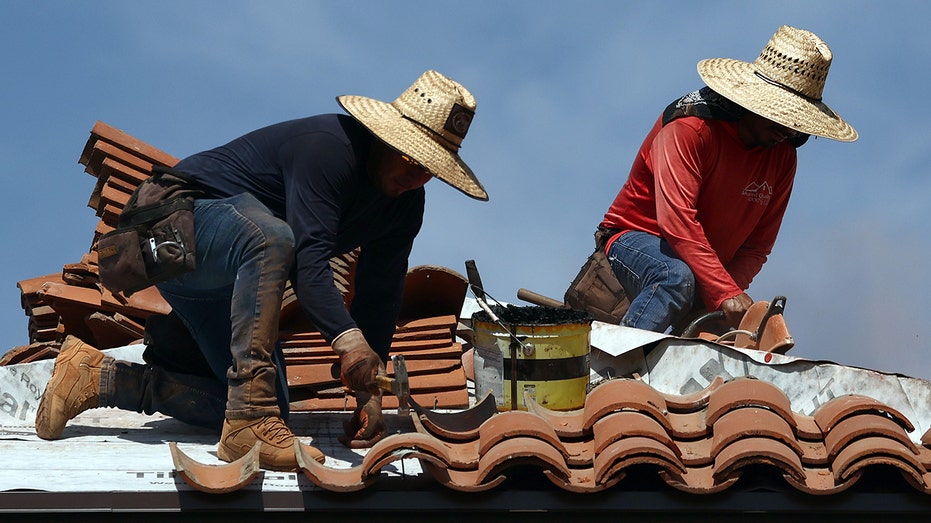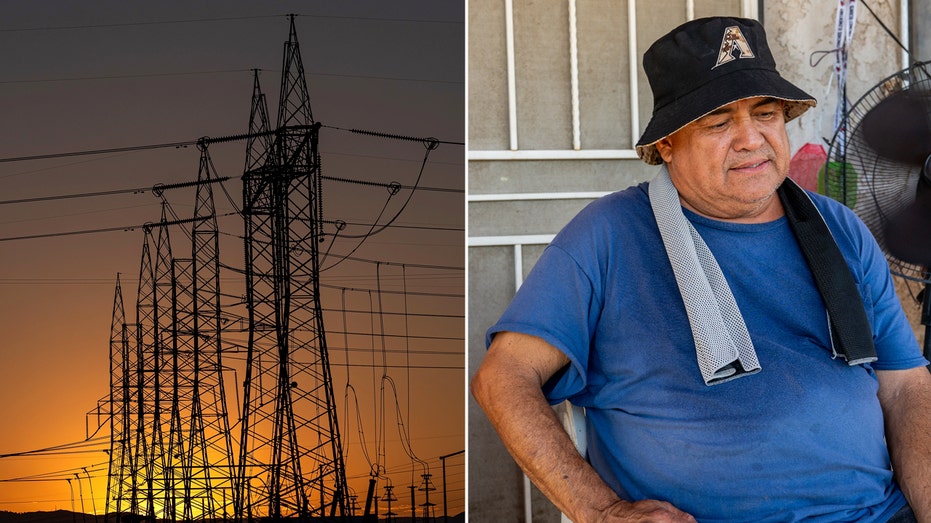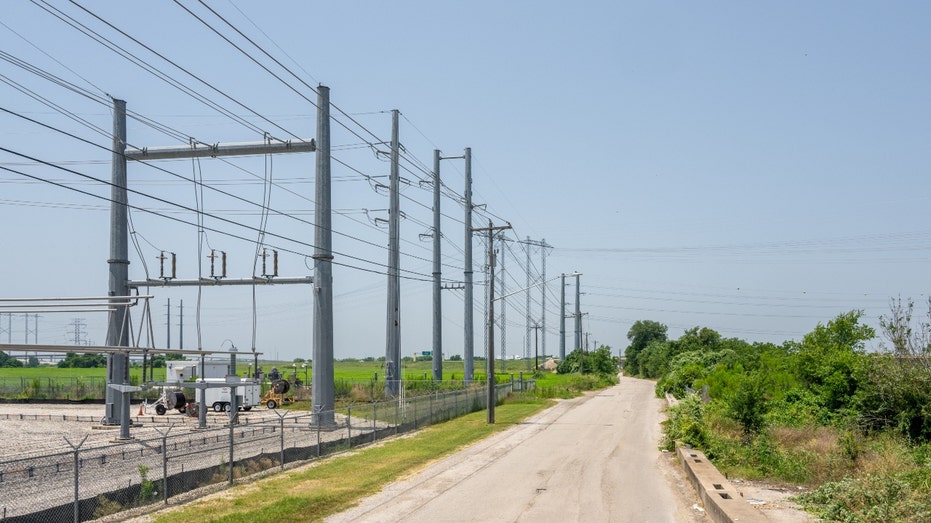Heat wave hits US economy as businesses and consumers try to adapt
Outdoor industries have been the most vulnerable to the heat and in some cases have been forced to pause in the interest of workers' and consumers' safety
Phoenix breaks record with 119 days of 110-degree heat
ClimateDepot.com publisher Marc Morano argues mainstream media is skewing temperature data to make it an issue on climate change on ‘Varney & Co.’
Hundreds of millions of Americans have dealt with high temperatures and heat warnings over the past week, and the heat wave is also taking a toll on the U.S. economy as businesses and consumers try to adapt.
Over 152 million Americans live in areas that were under some sort of heat alert, ranging from Heat Advisories to Excessive Heat Warnings, as of Thursday. The heat alerts stretched from the Northeast near Boston and New York, inland through the Washington, D.C., area, and south to North Carolina; in addition to covering broad swaths of the Midwest and South stretching from Ohio to North Dakota and Dallas to Birmingham, respectively.
As the sweltering heat lingers over much of the country, it saps some of the U.S. economy’s productive capacity as workers and consumers alike seek cooler environments.
"Heat stress is becoming more costly than ever before," Chris Lafakis, a climate economist for Moody’s Analytics, told FOX Business. "Last June was the warmest June on record, and July is on track to be the warmest month on record, according to NASA. Heatwaves have been especially intense in Southern Europe, but their economic cost spans the entire Northern Hemisphere. Heatwaves can cause mortality, close down businesses, and drive away tourists. Heatwaves can also stress regional power grids, driving up the cost and availability of space cooling."
DEADLY SUMMER SCORCHER RAGES ON AS MILLIONS TRY TO BEAT THE HEAT FROM CALIFORNIA TO THE NORTHEAST

Arizona has experienced a record-setting heat wave, with Phoenix going over three weeks with highs above 100 degrees. (Mario Tama/Getty Images / Getty Images)
Lafakis added that "workers are less productive when they are forced to work in hotter temperatures; particularly workers in outdoor industries. Heat stress is one of the major components of chronic physical risk, which – if left unchecked – could reduce U.S. GDP by 10% by the end of the century."
When businesses are forced to shut down operations due to excessive heat, it can leave them in a tight spot financially, particularly smaller businesses. Jonathan Bydlak, director of the R Street Institute’s Governance Program, told FOX Business that insurance policies can be helpful for businesses dealing with the heat in some cases.
BIGGEST US ELECTRICAL GRID OPERATOR ISSUES ENERGY EMERGENCY ALERT AS TEMPERATURES SOAR

The heat wave has hit much of the U.S., ranging from the Northeast to parts of the Southwest. (David Paul Morris/Bloomberg via Getty Images | Brandon Bell/Getty Images / Getty Images)
"Various lines of credit are available to small businesses dealing with the heat, but these aren’t always sufficient for extended business closures," Bydlak explained. "Some commercial property insurance plans will cover harms caused by extreme weather events, though not always."
"Increasingly, though, insurance markets have been stepping up to assist businesses facing hardship," he added. "Developments like heat stroke insurance policies and other income protection plans are becoming more common, and some of these are very specialized and sophisticated. Dairy farmers, for example, can buy plans that reimburse them when it’s too hot for their cows to produce milk."
TEXAS POWER USE BREAKS RECORD AS HEAT WAVE HITS SOUTHERN STATES

Extreme temperatures in Texas and other parts of the southern U.S. have strained the power grid. (Photo by Brandon Bell/Getty Images / Getty Images)
Innovations in insurance policies are just one way that the economy is adapting to address heat waves.
Ryan Young, a senior economist at the Competitive Enterprise Institute, told FOX Business that as some outdoor industries lose work time in the summer due to excessive heat, changes in the climate could enable those firms to get those work days back later in the year.
"There’s a lot that people can do to adapt," Young said. "If construction projects have to halt for a few days as climate changes, maybe they gain those days back in the winter."
GET FOX BUSINESS ON THE GO BY CLICKING HERE
Although several industries, particularly outdoor tourist attractions and small businesses, have seen a dip in business activity due to the heat wave, others have flourished despite it – even as some air-conditioned venues have benefited from the weather as well.
"If you look at other outdoor-centered activities, the concert industry and live events are back in a big way. Heat or not people are going to Taylor Swift concerts, they’re going to festivals," Young explained. "If people want to avoid the heat they can go to movie theaters, we’ve just seen a couple of big movie openings this week – I wouldn’t be surprised if, at the margin, the heat wave actually helped Barbie and Oppenheimer get slightly bigger openings just because people wanted to get somewhere that’s air-conditioned. So you have positive and you have negative, you can’t do anything about a heat wave."
